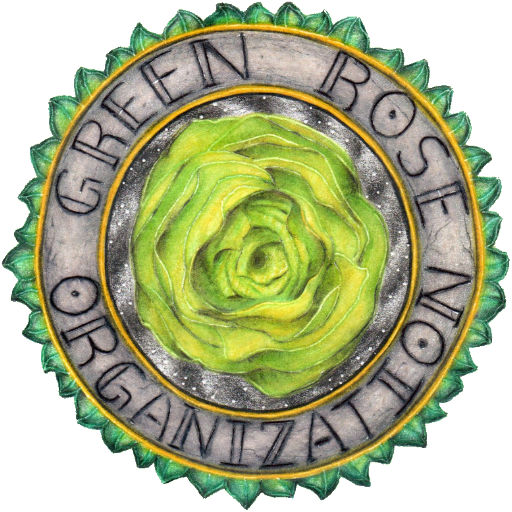
THE POWER OF BELIEFS
UNDERSTANDING HOW BELIEFS AFFECT US INDIVIDUALLY, CULTURALLY AND AS A WHOLE OF HUMANITY
Human beliefs are powerful—they shape our perceptions, choices, and the ways we interact with the world. On an individual level, beliefs influence our sense of identity, purpose, and decision-making. They can drive our motivations and determine how we respond to challenges or opportunities. For instance, a belief in optimism might propel someone to persevere, while a belief in failure could hold them back. Culturally, beliefs act as a shared foundation for customs, traditions, and values. They bring communities together, enabling collective expressions of art, religion, and social norms. Consider how beliefs about family, gender roles, or success vary widely across cultures—these shared ideas deeply shape societal structures and behavior. On a global scale, beliefs can unite or divide humanity. Shared values, such as belief in human rights or environmental stewardship, often drive progress and collaboration. But differing beliefs can also lead to misunderstanding, conflict, or even war. Yet, humanity’s ability to question, adapt, and evolve beliefs is what has propelled societal transformation through the ages, from scientific breakthroughs to movements for justice and equality. Beliefs are like the invisible threads weaving the fabric of humanity—they influence who we are, how we connect, and what we envision for the future.
UNDERSTANDING HOW BELIEFS AFFECT US PERSONALLY ON A MENTAL, EMOTIONAL AND SPIRITUAL LEVEL
Beliefs play a profound role in shaping our mental, emotional, and spiritual experiences, as they act like a lens through which we interpret the world and define ourselves. Let’s delve into each level: Mentally, beliefs shape our thought patterns and cognitive frameworks. They influence how we process information, evaluate situations, and make decisions. For instance, a belief in self-efficacy (the belief that we can achieve goals) fosters positive thinking, resilience, and problem-solving skills. Conversely, limiting beliefs, like a fear of failure, can create mental roadblocks that hinder growth or keep us stuck in negative cycles. Beliefs also affect how we perceive others and the world—whether with openness or skepticism—which impacts our intellectual curiosity and capacity for understanding. Emotionally, beliefs have a direct connection to our emotional responses. They form the basis of how we feel about ourselves, others, and the events in our lives. For example, a belief in one’s worthiness can lead to feelings of confidence and contentment, while beliefs rooted in insecurity or guilt can lead to fear, sadness, or anger. Emotionally-driven beliefs also provide a sense of stability or comfort in turbulent times—for instance, trusting that “everything will work out” can alleviate anxiety during stressful situations. On a spiritual level, beliefs often anchor our sense of purpose, connection, and transcendence. They guide moral and ethical choices, helping us define what is meaningful and sacred. Spiritual beliefs—whether grounded in religion, philosophy, or a personal sense of spirituality—offer a framework for understanding life’s mysteries and uncertainties. For many, they cultivate hope, gratitude, or inner peace, while providing comfort in the face of existential questions and challenges. Beliefs are interconnected across these dimensions, creating a holistic impact on personal well-being. They can empower, heal, or challenge us, and they reflect the ongoing dialogue between our mind, heart, and soul.
UNDERSTANDING HOW BELIEFS AFFECT THE PHYSICAL BODY
Beliefs have a tangible impact on our physical well-being, often operating through the mind-body connection. Here’s how this interplay works: Stress and Hormonal Responses—Beliefs about stress, danger, or fear can activate the body’s fight-or-flight response. For instance, if someone strongly believes they are in a threatening situation—whether real or perceived—the body releases stress hormones like cortisol and adrenaline. Over time, chronic stress driven by persistent negative or fearful beliefs can lead to health issues like weakened immunity, high blood pressure, and even heart disease. Conversely, positive beliefs, such as optimism or confidence in one’s ability to heal, can trigger the release of beneficial hormones like endorphins. These beliefs are often linked to reduced stress and improved overall health. Impact on the Immune System—beliefs play a critical role in immune system functioning. Research suggests that people with strong, positive beliefs—such as faith in their recovery—often experience better health outcomes. This is partly due to the placebo effect, where the mere belief in the effectiveness of a treatment can activate real physiological healing processes in the body. Behavioral Patterns and Physical Habits—beliefs influence behaviors that directly impact physical health. For example: Believing in the importance of exercise and a balanced diet motivates healthy habits, leading to better cardiovascular and metabolic health, whereas negative beliefs, such as “I’m not capable of losing weight,” might prevent someone from pursuing healthier choices, potentially leading to inactivity or poor nutrition. Pain Perception and Management—beliefs shape how we perceive and manage pain. For instance, those who believe that they can overcome pain often experience lower levels of discomfort compared to those who feel helpless or hopeless. Cognitive-behavioral therapy (CBT) often targets negative pain-related beliefs to improve physical comfort and recovery. Longevity and Quality of Life—beliefs about aging and life expectancy have been shown to influence longevity. Individuals who maintain positive beliefs about aging (e.g., “Growing older can bring wisdom and fulfillment“) tend to live longer and remain more physically active compared to those with negative age-related beliefs. In essence, beliefs are not just abstract ideas—they actively influence physical processes, shaping how the body functions and how we engage with our health.

